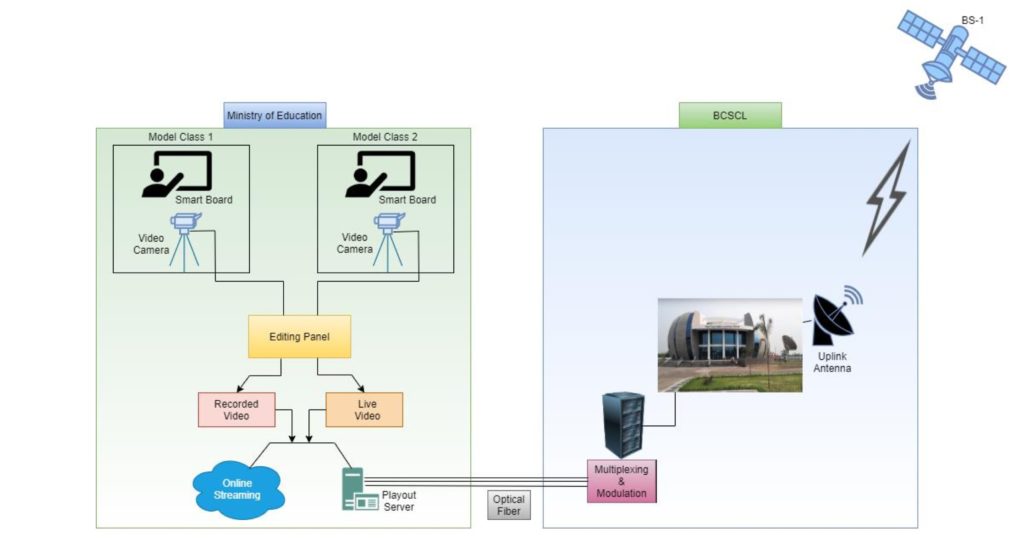As a developing country, tackling a pandemic like COVID-19 which has no cure and no prevention right now except staying behind locked doors and maintaining physical distancing is a hard job to do, and almost no administrative strategy works here. The economic strength of Bangladesh is not supportive to continue such a lockdown for a long time. Most of the wage earners live on a day to day income in this country. Where many of the offices, manufacturing plants, and shops remained closed for almost two months, educational institutes may remain closed for a longer period. Also, during this tough time, media is playing a major role. People are relying on TV channels to keep up to date.
Bangladesh entered the space industry and became the 57th country to own a satellite by launching its first satellite “Bangabandhu Satellite-1” in 2018. Since then, Bangladesh Communication Satellite Company Limited (BCSCL) has been operating the Bangabandhu Satellite-1 and enrolled all the TV channels of Bangladesh, which were using foreign satellites, saving more than $11 million cash outflow per year. For more than a year, BCSCL has saved the amount outflowing from the country by broadcasting all the TV channels using Bangabandhu Satellite-1.
During this pandemic, BCSCL has started a new horizon for a developing country like Bangladesh in the sector of education. A large number of students was deprived from getting education due to closing of the educational institutes. BCSCL primarily started showing lectures of different classes on a state-owned TV channel, “Sangsad TV”. Students from all over the country have the privilege of accessing knowledge through this initiative. Following this, BCSCL proposed a concept of several dedicated TV channels which will be broadcasted by Bangabandhu Satellite-1 all over the country. Students from every corner and every class can be connected by this project. Pre-recorded class lectures will be stored in a playout server and will be broadcasted all over the country using Bangabandhu Satellite-1. This technology may already be in use in many countries, but as a developing country where the literacy rate is just under 73%, this is a major step forward.
BCSCL is working collaboratively with other departments of government to give this proposal a shape and hopefully it will be in action within the shortest period of the time. This will not only enable students to enjoy class lectures during this lockdown, but will also in future enable much more, such as:
- Underprivileged children or others who cannot go to school or college during the day due to work will have the opportunity to learn at night.
- Where there is a shortage of quality teachers in many schools and colleges, all the students of those schools and colleges will get the opportunity to get education through quality teachers.
- During natural disasters or any other calamity, if access to schools and colleges are hampered, it will be possible to continue education distribution activities whilst maintaining the annual curriculum.
- All people irrespective of age and class will have access to education.

Fig: Simple Illustration of E-Education using Bangabandhu Satellite-1.
This vision would nonetheless have been implemented in the near future, but this pandemic situation has made people think diversely and enabled us to do things more quickly and efficiently than ever. We at BCSCL are looking forward to making a literate Bangladesh while we move forward to achieve Least Developed Country status and target achieving one hundred percent literacy rate amidst the major setback caused by COVID-19.